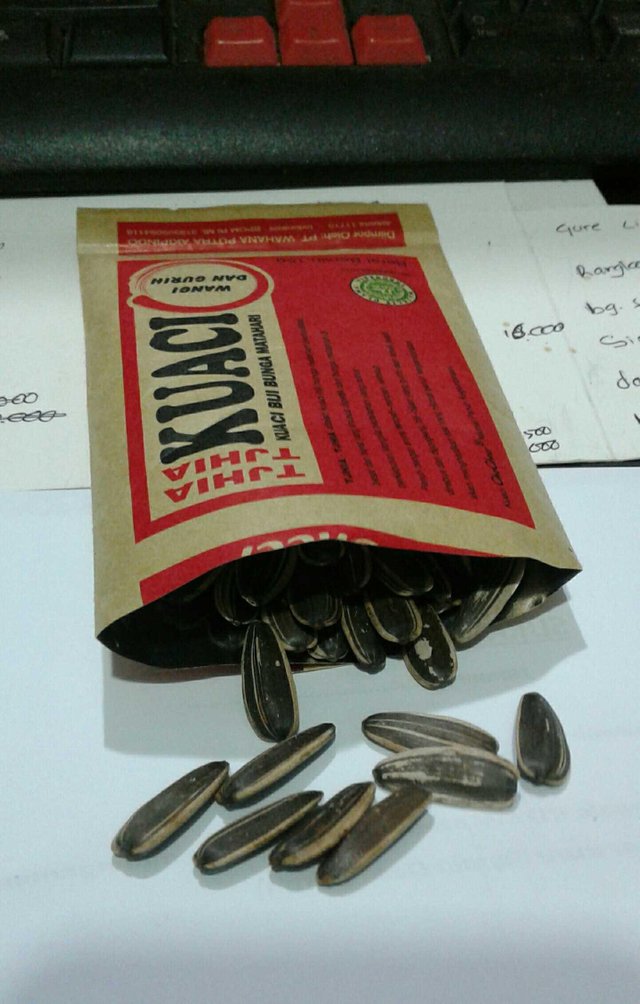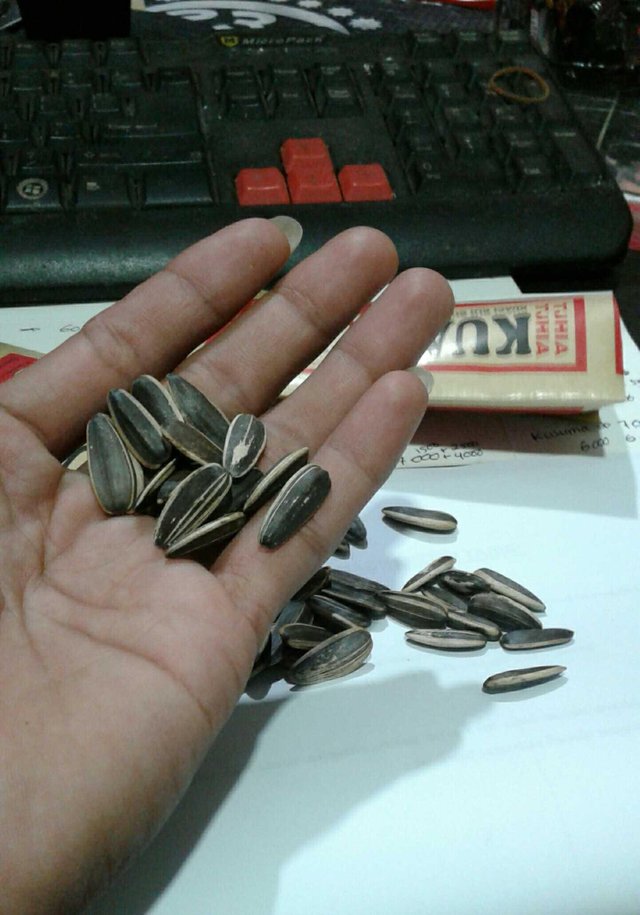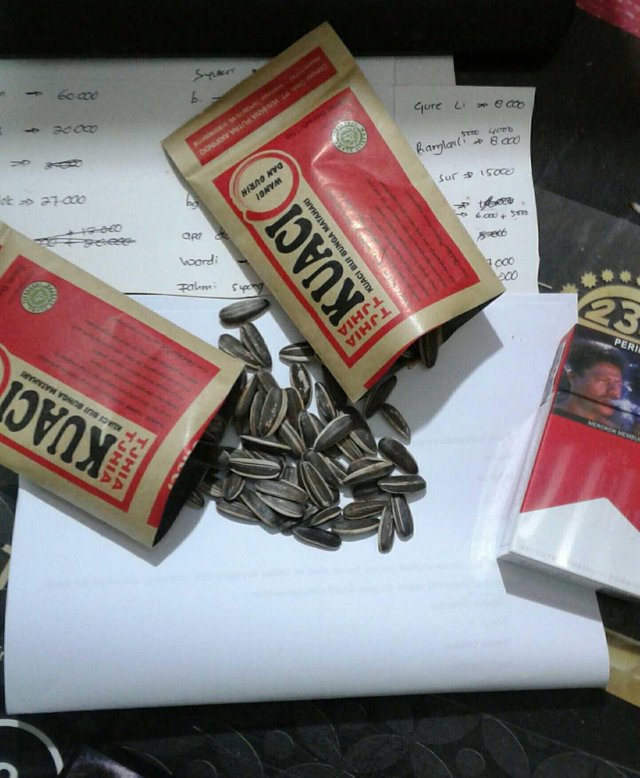Sunflower seed
Who does not know the sunflower quaci? Almost all have ever eaten a light snack on this one. Apparently, although the shape is small, but many nutrients that are beneficial to the health of our bodies. The nutrients present in the quaci are able to ward off cancer, repair and / or prevent cardiovascular disease, hypertension, and lower bad cholesterol levels.
Kuaci comes from sunflower seeds. Plants originating from Mexico and Peru are then spread since 1700 to many countries. The flower plants were then cultivated massively in Germany, France, Romania, Bulgaria, Russia, Hungary and the United States.
At first sunflower plants cultivated as an ornamental plant. Later seeds are used as a quart and oil source for cosmetic products. The center of cultivation of sunflower plants are located in Central Java and East Java.
Kuaci is a source of healthy fats (unsaturated) almost 90%, vitamins, antioxidants, minerals, proteins and phytochemicals are very good. In addition, sunflower seeds contain polyunsaturated fat (linoleic acid) and single (oleic acid), the type of fat that protects the heart. Clinical studies show that foods high in unsaturated fats are better than low fat foods, because it increases HDL (good cholesterol) and lowers LDL (bad cholesterol).
Sunflower seeds are also the richest source of vitamin E; A quarter glass of sunflower seeds gives 90.5% of daily requirement of vitamin E. Vitamin E is an antioxidant and anti-inflammatory; Reduce symptoms of asthma, osteoarthritis and rheumatoid arthritis, which is mainly affected by free radicals and inflammation. Adequate intake of vitamin E may reduce the risk of developing plaque in blood vessels and colon cancer. It can also reduce the severity and frequency of hot flush experienced by postmenopausal women and diabetic complications. In addition, kuaci also contain many useful minerals; Such as phosphorus (705-755 mg / 100 g), potassium (648-689 mg / 100 g), calcium (54-116 mg / 100 g), sodium (3-99 mg / 100 g), iron (6.77 -7.28 mg / 100 g), and copper (0.69-1.75 mg / 100 g).
Mineral calcium and phosphorus are very important role in the formation of bone and tooth mass, so it is useful to prevent osteoporosis. The presence of potassium minerals is essential to offset sodium. Potassium is hypotensive, which has a decreased effect of blood pressure.
The most important nutrient in sunflower quartz is phytosterol, one of phytochemicals. If consumed in sufficient quantities, proven to lower cholesterol levels in the blood, heart healthy, increase the immune response and reduce the risk of some types of cancer. A study showed that of the 27 most commonly consumed nuts and seeds in the US, sunflower seeds and pistachios had the highest phytosterol (270-289 mg / 100 g).
Sunflower seeds are also rich in folate (very good for pregnant women) and various minerals such as magnesium, selenium, copper, zinc, calcium, and iron.
However, although the chemical content of quaci plays a major role for health, the amount of consumption that is still low and not continuous causes the contribution of nutrition does not mean much to the community. Realizing the importance of oil in sunflower seeds, the seeds have now been processed into sunbutter.
Sunbutter is butter from sunflower seeds that can be used for cooking and making salads. The production of the flower seeds has been done in China, Russia, Europe, and also the United States. Currently, many sunflower seeds are processed into oil. Excess sunflower seed oil compared to olive oil is sunflower seed oil has higher oleic acid (omega-9). 


